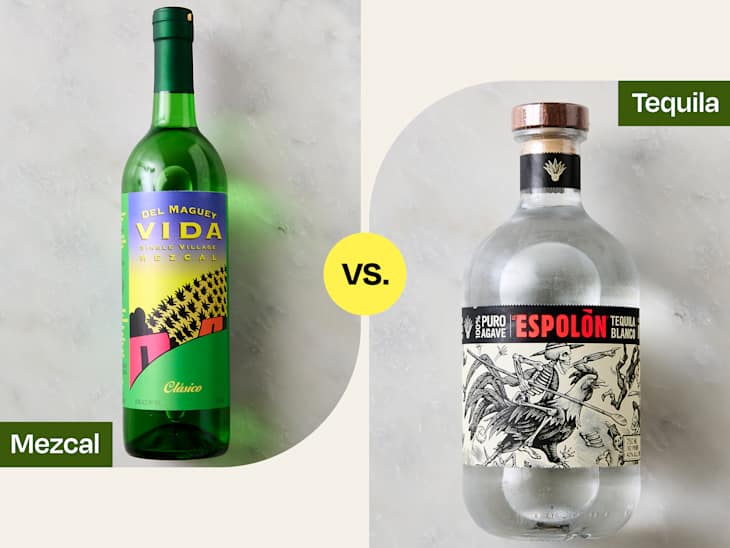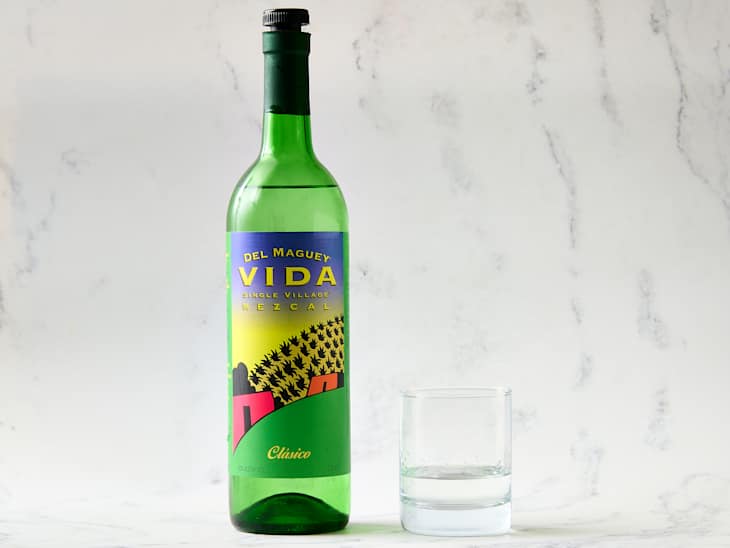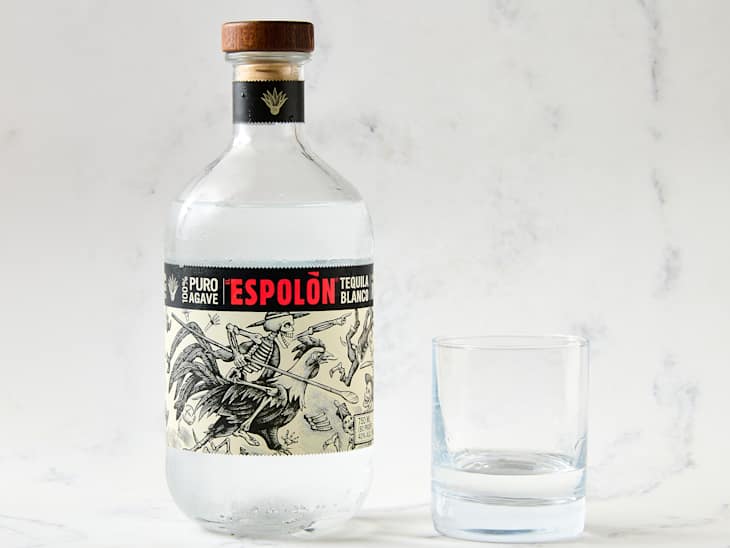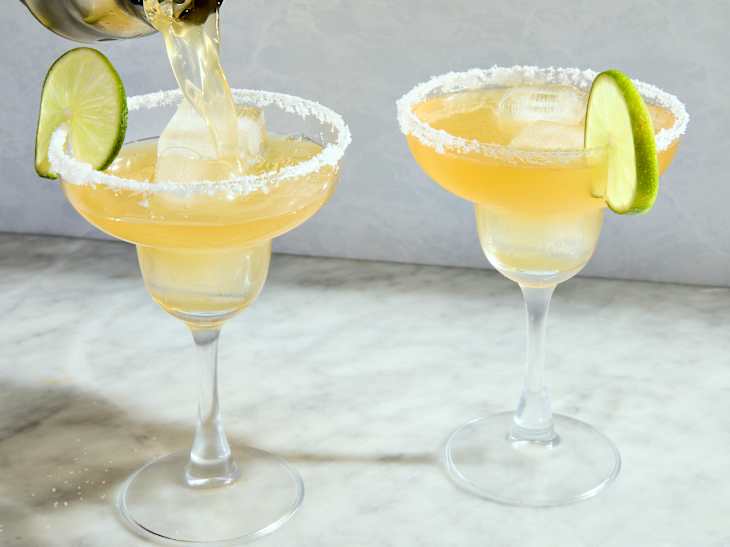

As I write this, it happens to be summertime, and while I’m typically a Manhattan girl, summer heat calls for a lighter option, like tequila. Some of the most popular summer drinks are made with tequila (I’m looking at you, margarita). You may have noticed, though, that many traditionally tequila-based cocktails are popping up with a different main ingredient: mezcal. What’s the difference between mezcal and tequila? Is one just a smokier version of the other? Or are they different liquors entirely? Here, we break down everything you need to know.
What’s the Difference Between Mezcal and Tequila?
- Mezcal is the general category for any distilled alcoholic beverage made from the agave plant. It can be made from any variety of agave, which is roasted underground, giving the drink its characteristic smoky flavor.
- Tequila is a type of mezcal made from one specific variety of agave, Weber Blue, and must be produced in or around Jalisco, Mexico. The agave is steamed instead of roasted, which is why it does not taste smoky.

What Is Mezcal?
The term “mezcal” refers to a distilled spirit made from agave plants. The heart (or piña) of the plant is slowly roasted underground, where it picks up the smoky flavor from the wood smoke. Next, it is crushed by a stone wheel to extract its juices, which are then fermented with a combination of water, yeast, or sometimes the crushed agave, depending on the type of mezcal being produced. The liquid is then distilled into mezcal. Some varieties are distilled up to 3 times before being bottled or transferred to barrels and aged.
Mezcal can be made from any kind of agave, and different varieties lend different flavors to the final product. The flavor of mezcal is complex, and can vary from very smoky and earthy to more sweet. There are many different types of mezcal, delineated by whether or for how long it was aged — like joven, which is un-aged, or añejo, which has been aged in wood barrels for at least a year — or how it was produced (mezcal ancestral is made via traditional methods, for example), or whether it is infused with other ingredients.
Recipes to Try With Mezcal

What Is Tequila?
Tequila is a type of mezcal. Despite the ubiquitousness of tequila on liquor store shelves and bar menus, the term “tequila” refers to a much more narrow group of spirits. By law, tequila can be produced only in and around the city of Jalisco in Mexico and only from one type of agave — a variety known as Weber Blue.
Instead of roasting the piñas underground, they are instead steamed, which is why tequila lacks the distinct smokiness of mezcal. Over time, the definition of tequila has expanded to include “mixtos,” which are distilled from a combination of agave and other sugars. Most tequila being consumed in the U.S. today fall into this category.
There are several varieties of tequila, most of which refer to whether or how long it has been aged and in what vessel. Silver or blanco tequila is un-aged, while reposado has been aged in oak barrels for at least two months, and añejo has been aged for at least three years.
Recipes to Try With Tequila

- Is mezcal stronger than tequila? While the term “stronger” is very subjective, many people use it to refer to the level of alcohol by volume (ABV) in a distilled alcoholic beverage or spirit. Mezcal and tequila usually have similar ranges of ABV, but some can vary.
- Can you substitute mezcal for tequila or vice versa? Yes, but while mezcal and tequila share some flavor characteristics, mezcal has a particularly smoky flavor, much more so than your average tequila. Keep that in mind when swapping one for the other.